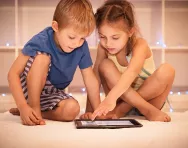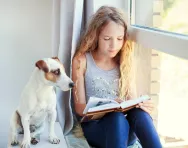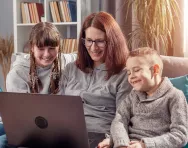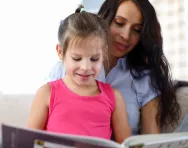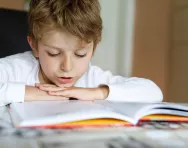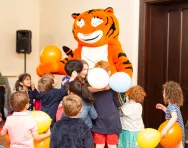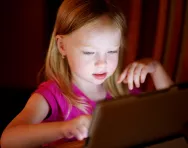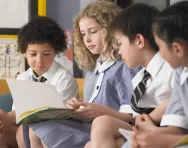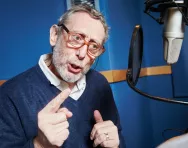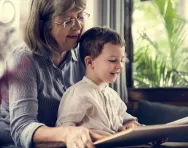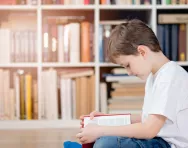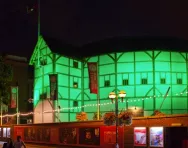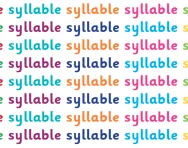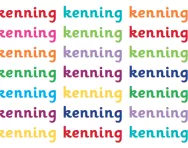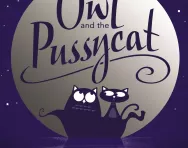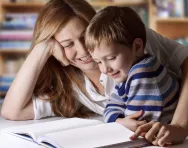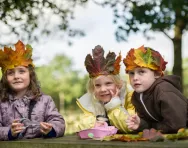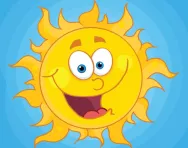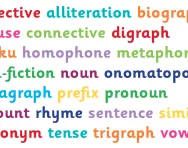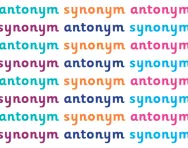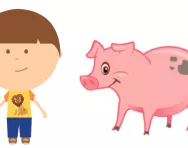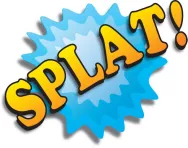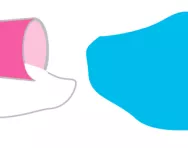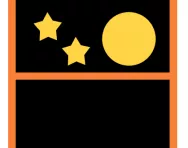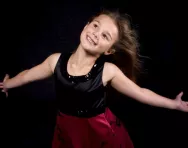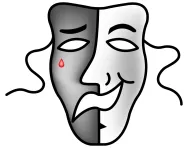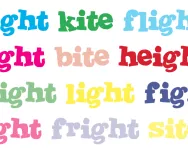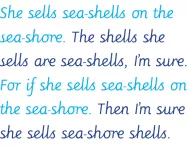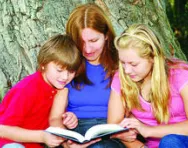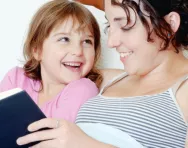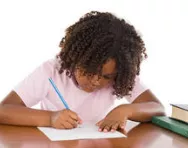Poetry and plays articles
Best nursery rhymes and fairy tales apps for kids
For many children, nursery rhymes and fairy tales are the first step on the road to independent reading. We’ve rounded up 10 of our favourite traditional song and story apps for pre-school, Reception and beyond.
10 reasons poetry is great for kids
How do poems help with learning, and how can you inspire a love of poetry in primary-school children? Charlotte Hacking, judge of the Centre for Literacy in Primary Poetry Awards (CLiPPA), shares her tips.
Best poetry home education resources
Do you love poetry, or wish you had more time to explore it? Introduce your family to the delights of the spoken word with this selection of wonderful free poetry resources. Classic poems for children, performance poetry videos, interactive poetry games and kids' poetry podcasts: everything you need to encourage a love of verse is available at the click of a button.
Best literacy resources
Whether your child is just learning to read and print letters or looking for ways to put their creative writing skills to the test, we've rounded up some fantastic resources to help them practise phonics, grammar, story-writing and comic-creating at home. Plus there are loads of different ways to connect with authors and listen to stories.
60 reading challenges for primary school kids
Great ideas for keeping your child engaged with reading and broadening their taste in books.
Best poetry apps for kids
Help your child fall in love with poetry with these great apps for reading, listening to and creating poems.
Best children's literary festivals in the UK
Bring books to life for book lovers of all ages, from pre-school to teenagers, at one of the world's best literary festivals. Meet authors, learn writing and illustrating skills at a workshop or take part in a debate – there are a wealth of bookish activities on offer for families throughout the year, and many of them are accessible online from anywhere in the world.
Best apps for new readers
Reading doesn't always have to involve books. We've rounded up the best apps for children who are learning to read, ranging from traditional tales to interactive games that will improve their reading as they play.
Best poetry books for children
We could tell you that reading and – even better – learning poetry by heart, will do wonders for your child’s memory, vocabulary and writing. We could tell you that reading and reciting poetry is now a key part of the National Curriculum. Or we could simply say that reading a brilliant poem might give your child a great deal of pleasure. Here are some of the best children’s collections out there, chosen by poet Emma Harding.
Inspiring children to read
When it comes to encouraging children's love of books and reading, teachers (and librarians!) are the experts. We asked Ashley Booth – reader, Year 6 teacher and passionate advocate of children's books – to share his tips for teachers (and for parents!) on igniting a love of reading in primary-school children.
Michael Rosen's 9 poetry-writing tips for kids
Is your child a budding poet? We asked prolific author and former Children's Laureate Michael Rosen for his tips for giving kids the poetry-writing bug.
Great poetry collections for children
Explore worlds of words with award-winning poet Rachel Rooney's pick of her favourite poetry collections for children.
Expanding your child’s reading tastes
Is your child stuck in a reading rut? Lucy Dimbylow takes a look at how to encourage them to test the water with different styles and genres of fiction and non-fiction.
Museums reviewed by parents: Globe Theatre
Experience the magic of the Shakespearean stage as a family at the Globe Theatre Exhibition and Tour in London. From stage fighting to period costumes, you'll be able to immerse yourself in Shakespeare's life, times and plays, and learn a few famous quotes too!
What is a syllable?
Syllables explained for parents, including details of how primary-school children are taught to identify syllables to help them with spelling and reading and understanding poetry.
What is a kenning?
Your child's KS2 poetry classes might include analysis of kennings, two-word phrases characteristic of Anglo-Saxon poetry. We explain what this literary device is and how your child might read and write kennings in the primary-school classroom.
7 classic poems to read with primary-school children
Poems come in all shapes and sizes. Some rhyme, some don't. Some are old, some are new. Introduce your child to a world of words to whisper, savour and inspire with some classic poems, chosen for primary-school children of all ages by poet Helen Mort, editor of The Owl and the Pussycat: An anthology of poems that every child should read. Enjoy!
4 ways to bring poetry to life for your child
With poetry on the new national curriculum for children as young as five, poet Adisa the Verbaliser explains how to make poetry magical for your child.
11 of the best ways to introduce children to Shakespeare
You don't have to be a theatre buff or a classic-literature lover to appreciate Shakespeare's wonderful stories, compelling characters and beautiful language. We say it's never too early to introduce children to the Bard, so here are 11 great ways to help under-12s fall in love with his verses.
What is figurative language?
Figurative language uses words and ideas to suggest meaning and create mental images. We explain how children are taught to recognise and use figurative language in KS2 English, with definitions and examples of simile, metaphor, personification, hyperbole and onomatopoeia.
Primary literacy glossary for parents
From adjectives to writing frames, TheSchoolRun's primary-school literacy glossary offers a complete guide to all the concepts children are taught in EYFS, KS1 and KS2 English. Brush up on your own literacy skills, clear up homework confusion and understand exactly what your child is learning at school by reading our basic definitions (with links to more detailed explanations, teachers' tips and examples).
What are synonyms and antonyms?
We explain what synonyms and antonyms are and how children are taught to use synonyms to improve their writing in primary school.
What is a metaphor?
A metaphor is a figure of speech where two things that are normally unrelated are compared to each other. Find out how teachers explain metaphors to school children and how to encourage your child to spot metaphors and use them to improve their writing.
What is onomatopoeia?
Onomatopoeia is a word that names a sound, but also sounds like that sound. Find out how teachers explain onomatopoeia to school children and how to encourage your child to use it to improve their writing.
What is a simile?
In Key Stage 2 children learn to recognise the use of figurative language in the texts they are reading. They will also be encouraged to use similes (and perhaps metaphors) in their writing. We explain how to identify similes and encourage your child to use them to improve their written work.
What is personification?
In KS2 children often analyse figurative language when reading poetry and fiction. Personification, or giving a non-living object human characteristics to describe it, is a common technique children will study and learn to use in their own writing.
Encourage a love of drama and the stage
Whether your child is a diva in the making or more inclined to be backstage crew, drama and acting could help develop skills that will offer a boost in many areas of life, says Lucy Dimbylow.
What is a play script?
Children learn to read, write and perform play scripts as part of the English and drama curriculum in primary school. Find out about the features of this genre, as well as ways to support your child's learning at home.
What is rhyme?
From reading rhyming poems to identifying rhyme schemes and rhyming couplets, we explain everything you need to know to help you support your child's love and learning of poetry at home.
What are alliteration, assonance and consonance?
When analysing poetry your primary-school child might mention alliteration, assonance and consonance. We explain what they've been taught to look out for in literacy lessons.
Film-making and animation fun for children
How can you stimulate your primary-school child's interest in literacy and storytelling? From script-writing to editing, these hands-on movie-making activities are perfect for older children to have a go at. You might even help inspire the next Danny Boyle!
9 ways to help your child love poetry
Use National Poetry Day as an excuse to enjoy the creative wordplay that poetry can offer! Coax out the budding poet in your child with these games and activities, and boost their literacy skills the fun way.
Inspire your child to write poetry
Encouraging your child to pick up a pen and try writing some poetry can help them become more emotionally literate and improve their confidence. We have some top children's poetry tips.
